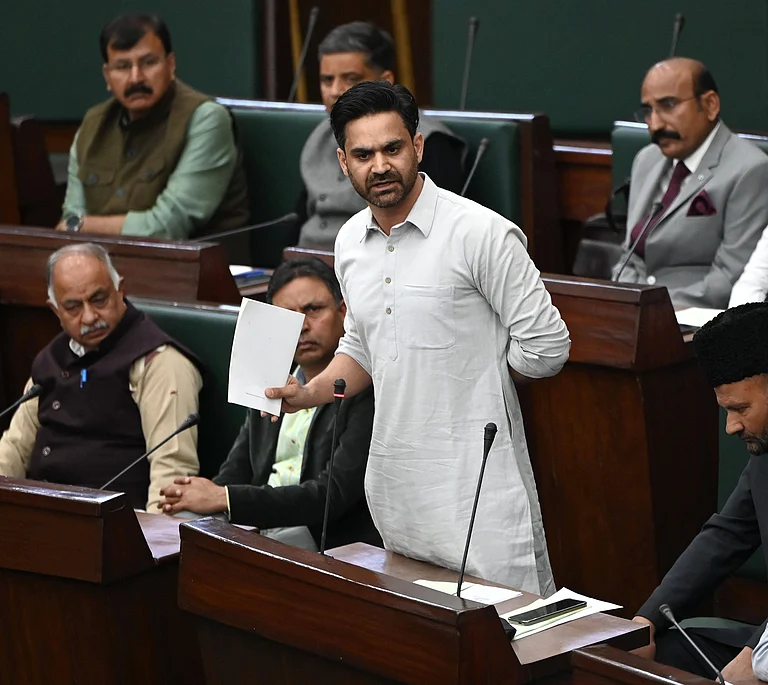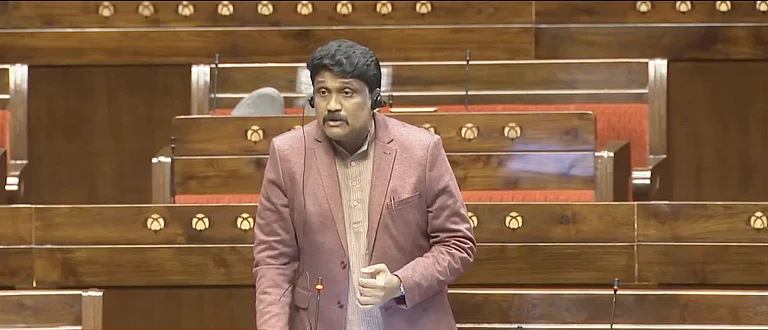AS liberal parents with 'superior' sensibility, questing for a moral and humane island for our daughter in an enveloping sea of schlock, we floundered early. We had entered parenting hobbled with handicaps. For my parents the choices had been uncomplicated: the local missionary school, and regular inspirational dole about the IAS. For us, with our youthful cultural pretensions, the world was a minefield of vulgarity and crass ambitions, through which we had to set a clean and elevating course for our daughter.
To our credit, we were not interested in the profession she would grow up to pursue, but we knew the kind of person we wanted her to be. We wanted her to love a certain kind of book, listen to a certain kind of music, be moved by every kind of tree, not shout at the servants, and yes, preferably, not join the IAS. Well, I admit, this was a sort of cultural agenda, but the underlying presumption was that it was this—civilisational refinements and humane impulses—that would determine the person she was and not the degrees she acquired and the jobs she held. These were superficial, coverlets that could be changed; what was important was to determine the shape, slant and solidity of the furniture underneath.
In keeping with these fine aspirations for her, we picked a school that bucked orthodox educational practises. Mirambika, run by the Aurobindo sect, was unconventional, alternative—no uniforms, circular classrooms, slightly amorphous curriculum—and parents were tested rigorously. We made all the right noises, and Tiya was accepted. For some months we were happy: for Tiya—unregimented, unburdened—was happy.
But then slowly, imperceptibly a fear began to gnaw at us. Wasn't this school a little too unstructured? Was Tiya learning enough? Would she be able to make the transition to a regular school after class eight? Worse, by forging a milder, insular reality for her, were we going to leave her ill-equipped for the big bad world? Like the young wife, Sharmila Tagore, in Satyajit Ray's Devi , we began to be haunted by the big 'what if?' In the film's crucial moment, the young wife fleeing from her deification comes up short when she is suddenly assailed by the thought, "But what if I am a devi?", and in the awesome existentialism of that moment, she turns back. And so it began to work on us—we didn't want her to, but suppose she did want to be an engineer, a doctor, or, horrors, a chartered accountant?
Surreptitiously, ridden with guilt, we applied at a new school, Vasant Valley, which promised a compromise between the radical and the conventional. Like fugitives fleeing in the dark, we slipped out of Mirambika. We felt like abject turncoats, but worse than that we agonised about Tiya's ability to adapt. It is the one agony parents dread—that their child may suffer a pain of the spirit that they cannot alleviate. In the event we received a lesson in the adaptability of the child. Tiya settled in easily, made new friends, learnt to sit in a classroom, to wear a uniform.
As I said: in our liberal, alternative weltanschauung , we floundered early, but it's not as if we did so for the last time. In fact, we seem to walk the tightrope of life-determining choices for our two daughters everyday. I can't imagine the same having been the case for my father; and if it was, I salute him for not reducing us to screwballs or having ended up as one himself.
Leading the onslaught on the kind of lives we'd like to shape for our daughters is the telly. It shovels in a tidal wave of garbage into our house that my daughters consume gleefully. Endlessly: garish, godawful movies; loud, wheedling song and dance programmes: violent, loony cartoons; crass, hysterical soaps. Far from being a prude, I see the relevance of kitsch. Low culture has its own peculiar energy and wisdoms: Bachchan's antics can be as exhilarating as Bach's concertos. What worries me is that Bachchan's antics is all they may know. What worries me is that the flood of offal may drown out all else. That gyrating film stars, half-assed models, and gimmicky musicians may be their only role models. That contrary to the popular notion that the modern world is characterised by endless choice, there may actually be very little, for the choice between kitsch and kitsch is no choice at all.
The worry is that pop culture, fuelled by the massive engines of capitalism, is geared at producing consumers not citizens. So why don't we turn off the telly? For one, we are not bullies. Unlike in an earlier generation, our children are our friends; and in our liberalism we prefer dialogue and negotiation to diktat while laying down domestic parameters. Secondly, it's back to the Mirambika syndrome. We balk at removing them completely from their larger context, incapable of discussing Shahrukh's latest film and Channel V's latest hit, and by this lack marginalised in the happy trivial commerce of childhood.
And that plonks us right back on the horns of the dilemma. We want them to be at home in the prevailing weather, of kitschy pop, but worry constantly that in the age of wall-to-wall media this kitsch may be the only climate. Childhood is a wonderful linear journey, and parents tend to milestone it with an instinctive code of rites: admissions into new knowledge, initiations into new practises. Awe and wonder in the child are kept alive, and sated, in a continual progression. But the desensitised barrage of media is wresting away this agenda from parents: it is making shallow cynics of our children. In those flickering images, they've seen it all. It is difficult to excite a child about a white-breasted kingfisher, when he spends his days communing with laser-shooting heroes and hip-talking animals.
Analysts worry that pop culture, fuelled by the massive engines of capitalism, with profit its only God, is geared at producing consumers not citizens. It is a valid fear no thinking parent can ignore. Will kitsch and consumerism claim my child before her soul has had a chance to flower? Many parents try to staunch the decay with inoculations of Bharatnatyam, piano lessons, wildlife safaris. We buy our daughters books. It used to anger my parents that I read novels all the time. It thrills me that Tiya reads voraciously. From my father to me, we have come a long way. He wanted me to read only uplifting stuff, Thomas Hardy. I don't care what Tiya reads as long as she reads—and I will buy her any number of books.
Of course, my wife thinks my attitude smacks of consumerism, no different from other self-gratifying parents who go out and buy their children any number of toys just because they can afford to. I argue that books are a nodal value, a cornerstone of civilisation. She counters that there are libraries Tiya must learn to access, else books will end up for her like any other article of consumption, easily purchased at a shop. Pushed back on the prongs of a dilemma, I turn on the telly to drive away my fears.


























